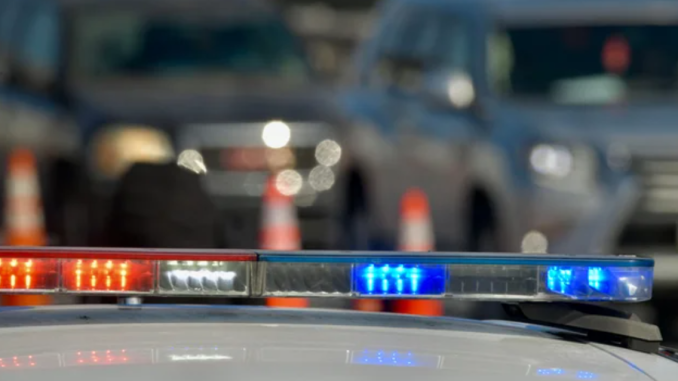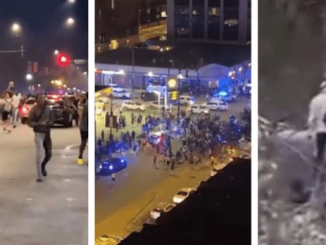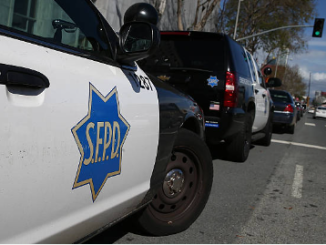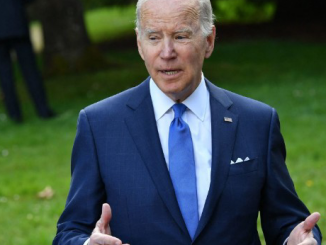
Preparing for a trip to the bank, Marlon Mayorga, the owner of a small convenience store on Patapsco Avenue in South Baltimore, counted cash in the otherwise empty business early one morning.
As he counted, a person in a hoodie and with their face covered entered the front door, turned toward the counter, pulled out a gun and demanded the cash.
The robbery last month at La Bodeguita in Brooklyn is among 714 robberies recorded in the city so far this year. That’s a 24.6% increase, from 573 at the same time last year, according to latest available data from the Baltimore Police Department.
Those incidents include robberies at convenience stores, gas stations and other commercial businesses, as well as carjackings and street robberies. The biggest increase is among convenience stores, where robberies — the unlawful taking of property from a person with force or the threat of it — have jumped 300%, with more than 80 so far this year.
Police also have recorded a large increase in robberies they identify as “miscellaneous.” There have been 268 robberies in that category, compared to 24 at the same time last year — a more than tenfold increase. However, the department attributed the surge in that category to its switch to a new reporting system. Officials say they are working to correct that data.
The city’s robbery numbers are rising even as cases decline in neighboring Anne Arundel and Baltimore counties, where police report they are down to 60 and 111 so far this year, respectively, from 75 and 132 in the same period last year. The sheriff’s offices in Carroll and Harford counties also have not reported an increase in robberies.
Howard County has seen an uptick so far this year, with 24 robberies so far, up from 13 at the same time last year. However, last year was much lower compared to the last five years.
In 2019, then-U. S. Attorney General William Barr called Baltimore the country’s “robbery capital” as he announced the city was among several to receive increased law enforcement resources.
But at that point, robberies had been declining steadily since 2017, when the city reported 5,879, according to FBI data. The number dropped to 3,100 by 2020, the first year of the coronavirus pandemic. Last year, the number increased slightly to 3,400 robberies.
The sharp surge upward in the first three months of 2022 has raised concerns.
“I’m not satisfied where we are with robberies,” Democratic Mayor Brandon Scott said in an interview Thursday. “What we don’t want do is give up space where we have had gains.”
The spike comes as the department battles a stubbornly high rate of violent crime. Already, 76 people have been killed in the city this year, up from 65 at the same point last year. There have been 156 other people injured in shootings, up from 115 at this time last year. The city has reported more than 300 homicides each year since 2015.
“We’re concerned about any crime increases, but robberies in particular,” said Democratic City Councilman Kristopher Burnett, who serves on the council’s public safety committee.
“No one wants to be the victim of a robbery, but botched robberies have led to violence,” too, he said. “It’s absolutely a concern.”
In January, DoorDash delivery driver Cheryl McCormack, 51, was shot and killed during what police called “a robbery gone bad.” Police have arrested and charged two 16-year-old boys.
Police are making progress, said Scott, pointing to the department’s 34% clearance rate for robberies, which is above the national average of 28%, as well as 32 arrests for carjackings. He and police officials have touted the addition of 12 more license plate readers and improved coordination between a citywide robbery unit, patrol officers and Foxtrot, the city’s police helicopter, which have contributed to arrests.
“We know we have a long way to go,” Scott said.
Col. Richard Worley, chief of detectives of the department’s Criminal Investigation Division, said investigators are working to make arrests. He said officers arrested Saul Jenkins, 45, on Wednesday following a robbery at 7-Eleven at South Broadway and East Lombard Street in Fells Point. Worley said investigators believe the man is connected to up to 10 robberies at other 7-Eleven locations in the city.
Charging documents were not available, but Worley said the suspect was arrested after a witness called police to report a robbery in progress, and three officers managed to arrest the man at the store.
“It was outstanding work from the community and by the three officers,” Worley said.
The defendant pleaded guilty in 2008 to armed robbery and was sentenced to 10 years, court records show.
Worley said it’s common for robbery suspects to hit multiple locations, and people are often connected and charged to multiple incidents that occur over weeks or months. After several recent arrests, he said he believes the number of robberies will level off.
It’s the same with carjackings, he said. After the city started the year off with a sharp increase in carjackings, the number leveled off after police made several arrests.
Robberies have increased across the city, but the Northern district with 132 and Northeast with 92 have seen the most. The Northeast District — the city’s largest in population and size — has seen a 59% increase so far this year.
The recent trend has been at smaller chain stores, such as 7-Eleven, Family Dollar and Dollar General, Worley said. In addition to cash, Worley said investigators have seen suspects make off with other items, such as cigarettes.
Often, Worley said, patrol officers stop suspects at the scene or fleeing from it. Surveillance video, both from the shops and neighbors’ private security systems, has helped officers identify suspects and make arrests.
The National Association of Convenience Stores, which represents 148,000 stores nationwide, including 1,967 in Maryland, did not have updated statistics, but its members are reporting more crime, said Jeff Lenard, a spokesman for the organization.
“The economy is struggling. That means people are out there struggling and that leads to more crime, and that is what we are hearing from retailers,” Lenard said.
Some larger businesses are implementing more varied security, including hiring full-time guards, investing in more surveillance video, and other measures to prevent or reduce the risk of loss from robberies and other theft. Rite Aid has used GPS trackers, placed discreetly among cash, to help authorities find suspects, according to court documents in one recent case that resulted in an arrest.
Christina Cornell, a spokeswoman for The Home Depot, wouldn’t provide specifics on robberies at its three stores in the city. But she said a steep rise in retail theft has caused the national home improvement chain to invest more in investigating and deterring crime at stores.
Cornell said Home Depot employs investigators who work directly with local law enforcement. Additionally, she said the company is adopting more anti-theft tools, such as “point-of-sale activation measures,” to deter robberies and thefts. Point-of-sale activation involves digitally unlocking electronic or other powered devices only after a consumer has paid for them.
Some longtime mom-and-pop shops in some of the city’s more challenged neighborhoods have relied on other measures.
“I’m in Plexiglas, myself,” said Mario Chang, who owns Gera Variety, a liquor store in the Mondawmin neighborhood of West Baltimore. “I would love it to be different, but there’s a lot more potential there. It’s just the area.”
Chang said such crimes are about opportunity. He believes his store has been largely protected, even during unrest after the death of Freddie Gray, who died in 2015 from injuries sustained in police custody. While many businesses were looted, damaged or destroyed, Chang said his was untouched, which he attributed to his shop’s reputation in the community.
Chang, who is also president of the KAGRO of Maryland, a group of Korean American retailers, said corporate stores often don’t have the same challenges. He sees the crimes there as less personal, and notes the stores can reopen more quickly. For smaller businesses, a robbery can be devastating.
Mayorga said he doesn’t have the resources to invest in heavy security.
The gunman who robbed his store made off with a large amount of cash for the small, neighborhood shop Mayorga opened a year ago with his family. The shop mostly sells inexpensive items, like cold drinks and snacks.
Most of the money was for Maxi, a money transfer company, which Mayorga said he’s now responsible for.
When asked if he’s concerned for his safety, he said, “a little,” but for now, he’s more concerned about figuring out how to pay back the stolen money.
*story by baltimoresun.com


